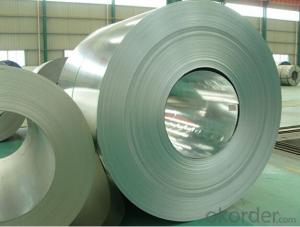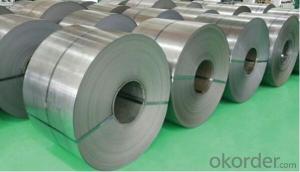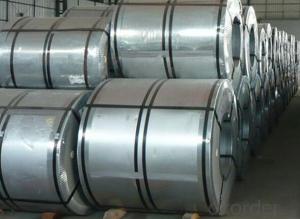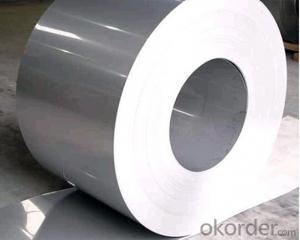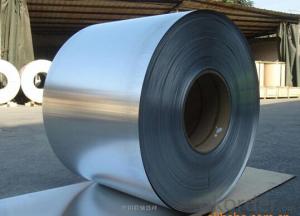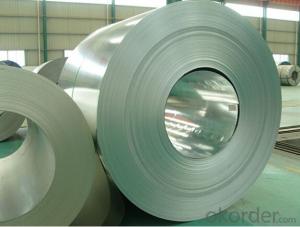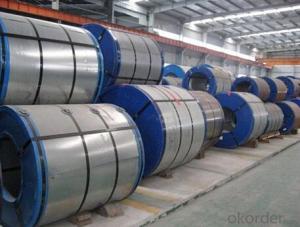Grade JIS G3141-SPCC-1D Galvanized Steel Coil
- Loading Port:
- Tianjin
- Payment Terms:
- TT OR LC
- Min Order Qty:
- 3 m.t.
- Supply Capability:
- 10000 m.t./month
OKorder Service Pledge
OKorder Financial Service
You Might Also Like
Specification
Grade JIS G3141-SPCC-1D Galvanized Steel Coil
Specification of Grade JIS G3141-SPCC-1D Galvanized Steel Coil
1. Galvanized Steel Coil
(1) Width: 600-1570mm
(2) Thickness: 0.13-5.0mm
(3) Grade: JIS G3302-SGCC-SGC570, SGCH (full hard-G550), SGHC-SGH540
EN10346-DX51D+Z, DX53D+Z, S250GD-S550GD
ASTM A653-CS-B, SS255-SS550
(4) Zinc Coating: Z40g/m2~Z500g/m2 (both side total coating thickness)
2. Galvalume Steel Coil
(1) Width: 600~1500mm
(2) Thickness: 0.15~2.30mm
(3) Grade: JIS G3321-SGLCC, SGLC400-570, (G550)
EN10346-DX51D+AZ, DX53D+AZ, S250-S550
ASTM A792M CS-B, SS255-SS550
(4) AZ Coating: AZ50~AZ185g/m2
3. Prepainted Galvanized Steel Coil (PPGI)
(1) Width: 600~1250mm
(2) Thickness: 0.19~1.50mm
(3) Grade: JIS G3312-CGCC, CGC340-570, (G550)
ASTM A755M CS-B, SS255-SS550
(4) Zinc Coating: Z40g/m2~Z500g/m2 (both side total coating thickness)
4. Prepainted Galvanized Steel Coil (PPGL)
(1) Width: 600~1250mm
(2) Thickness: 0.20~1.50mm
(3) Grade: JIS G3322-CGLCC, CGLC340-570, (G550)
ASTM A755M CS-B, SS255-SS550
(4) AZ Coating: AZ50~AZ185g/m2 (both side total coating thickness)
5. Cold Rolled Steel Coil (Soft) (for further information, pls click the product name)
(1) Width: 600~1570mm
(2) Thickness: 0.13~2.50mm
(3) Grade: JIS G3141-SPCC-SD, SPCD-SD, SPEC-SD
JIS G3135-SPFC 340/390/440
EN10130-DC01, DC03, DC04
SAE1006, SAE1008
ASTM A424-TypeⅡ
6. Cold Rolled Steel Coil (Full Hard) (for further information, pls click the product name)
(1) Width: 600~1570mm
(2) Thickness: 0.13~2.50mm
(3) Grade: JIS G3141-SPCC-1B, SPCC-1D
7. Hot Rolled Steel Coil
(1) Width: 1000~1524mm
(2) Thickness: 1.20~16.5mm, other thickness can be negotiation
(3) Grade: JIS G3101-SS400, JIS G3132-SPHT1/2/3, ASTM A36, Q195, Q235 etc.
Company Introduction of the Grade JIS G3141-SPCC-1D Galvanized Steel Coil
CNBM International Corporation is the most import and export platform of CNBM group(China National Building Material Group Corporation) ,which is a state-owned enterprise, ranked in 270th of Fortune Global 500 in 2015.
With its advantages, CNBM International are mainly concentrate on Cement, Glass, Iron and Steel, Ceramics industries and devotes herself for supplying high quality series of refractories as well as technical consultancies and logistics solution.
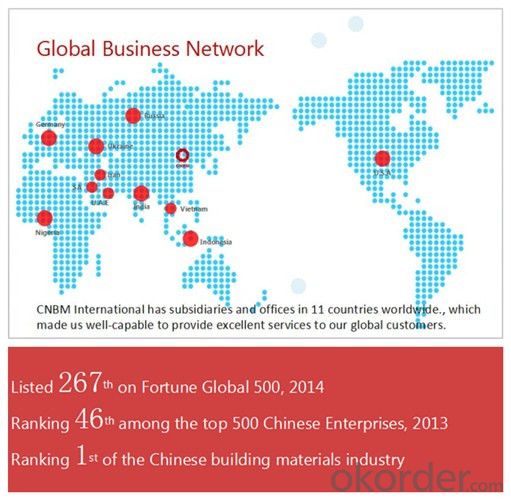
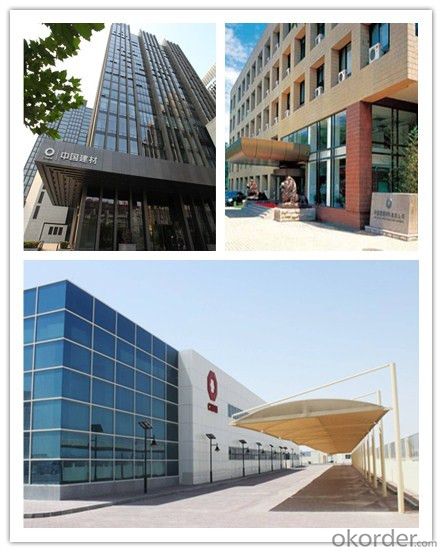
Packaging & Delivery of the Grade JIS G3141-SPCC-1D Galvanized Steel Coil
Packaging Detail | Sea worthy packing /as per customer's packing instruction |
Delivery Detail | 15 ~ 40 days after receiving the deposit |
Products Show:
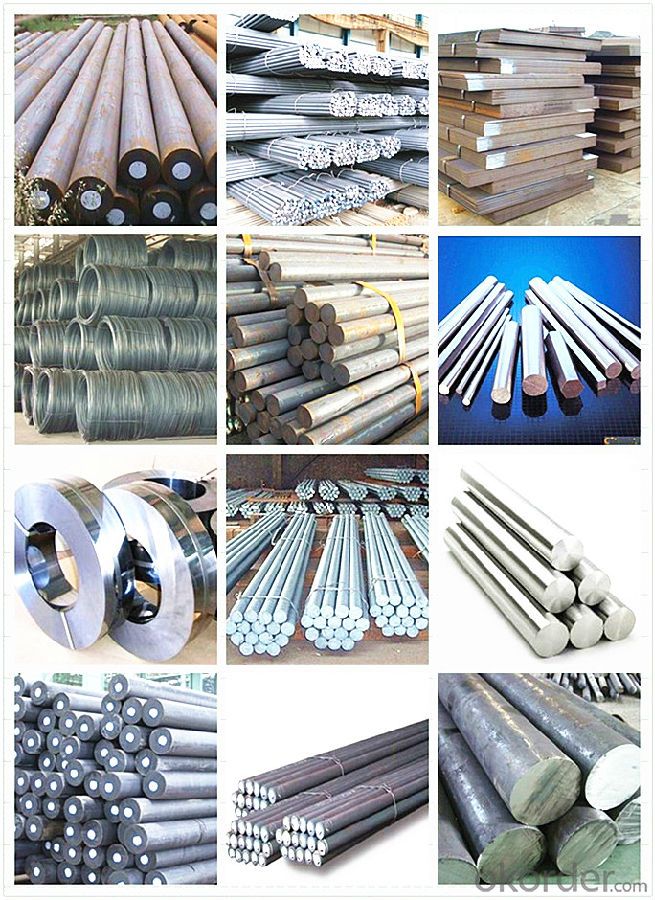
FAQ:
Are you a trading company or manufacturer? | Manufacturer |
What’s the MOQ? | 3 metric ton |
What’s your delivery time? | 15-35 days after downpayment received |
Do you Accept OEM service? | Yes |
what’s your delivery terms? | FOB/CFR/CIF |
What's the Payment Terms? | 30% as deposit,70% before shipment by T/T |
Western Union acceptable for small amount. | |
L/C acceptable for large amount. | |
Scrow ,Paybal,Alipay are also ok | |
Why choose us? | Chose happens because of quality, then price, We can give you both. Additionally, we can also offer professional products inquiry, products knowledge train (for agents), smooth goods delivery, excellent customer solution proposals. |
What's your available port of Shipment? | Main Port, China |
What’s your featured services? | Our service formula: good quality+ good price+ good service=customer's trust
|
Where are your Market? | Covering more than 160 countries in the world |
- Q: How does the composition of special steel affect its mechanical properties?
- The composition of special steel plays a significant role in determining its mechanical properties. Special steel refers to a type of steel that has been modified or alloyed with other elements to enhance its strength, toughness, hardness, and other desirable properties. The addition of various alloying elements, such as manganese, chromium, nickel, molybdenum, vanadium, and tungsten, can significantly impact the mechanical properties of special steel. For example, the addition of chromium can improve corrosion resistance and hardness, making the steel more suitable for applications in harsh environments. Manganese is often added to enhance the hardenability and tensile strength of the steel. Nickel can increase toughness and strength while maintaining good ductility. The amount and combination of these alloying elements can be adjusted to achieve specific mechanical properties. For instance, increasing the carbon content can enhance the strength and hardness of the steel, but it may decrease its ductility. On the other hand, decreasing the carbon content and adding elements like nickel and molybdenum can improve the steel's toughness and impact resistance. Additionally, the heat treatment process is crucial in influencing the mechanical properties of special steel. Through processes such as quenching and tempering, the steel's microstructure can be manipulated to achieve desired properties. Quenching, for example, involves rapidly cooling the steel to obtain high hardness and strength, while tempering helps reduce brittleness and improve toughness. In summary, the composition of special steel, including the type and amount of alloying elements, as well as the heat treatment process, plays a crucial role in determining its mechanical properties. By carefully selecting and controlling these factors, manufacturers can tailor special steel to meet specific performance requirements for various applications.
- Q: What are the different surface protection methods used for special steel?
- The different surface protection methods used for special steel include galvanizing, painting, powder coating, and electroplating. These methods are employed to prevent corrosion, enhance durability, and improve appearance. Galvanizing involves applying a layer of zinc to the steel surface, creating a protective barrier. Painting involves applying a coat of paint, acting as a protective layer against environmental factors. Powder coating is a process where a dry powder is applied to the steel surface and then heated to form a durable and protective layer. Electroplating involves depositing a thin layer of metal onto the steel surface through an electrolytic process, providing corrosion resistance and aesthetic appeal.
- Q: How does special steel perform in low-temperature applications?
- Special steel performs well in low-temperature applications due to its unique properties such as high strength, toughness, and resistance to brittleness. It retains its mechanical properties even at extremely cold temperatures, making it ideal for industries like aerospace, automotive, and energy where materials need to withstand challenging environments.
- Q: How does special steel comply with international standards?
- Special steel complies with international standards through a rigorous quality control process that involves testing the material for its chemical composition, mechanical properties, and dimensional accuracy. These standards, such as ISO, ASTM, and DIN, ensure that the steel meets the required specifications and performance criteria for various applications. Manufacturers also follow strict production guidelines and undergo regular audits to maintain compliance with these international standards.
- Q: How does special steel perform in high-stress corrosion cracking environments?
- Special steel is specifically designed to perform well in high-stress corrosion cracking environments. This type of steel is highly resistant to corrosion and can withstand the combination of stress and corrosive elements present in these environments. Its unique composition and manufacturing process make it more durable and less prone to cracking, ensuring its reliable performance in such challenging conditions.
- Q: Can special steel be used for aerospace engine components?
- Yes, special steel can be used for aerospace engine components. Special steel alloys, such as nickel-based superalloys, are often used in the manufacturing of aerospace engine components due to their excellent high-temperature strength, corrosion resistance, and ability to withstand extreme conditions. These steel alloys are specifically designed to meet the stringent requirements and demands of aerospace applications, ensuring optimal performance and reliability of the engine components.
- Q: What are the main applications of special steel in the oil and gas equipment?
- Special steel is widely used in the oil and gas equipment industry primarily for its exceptional strength, corrosion resistance, and ability to withstand high temperatures and pressure. It is extensively used in the production of drilling tools, pipelines, valves, and other critical components that are required to operate in harsh and demanding environments. The main applications of special steel in this industry include drill bits, wellhead equipment, subsea equipment, and offshore platforms, all of which rely on the superior properties of special steel to ensure safe and efficient operations in the oil and gas sector.
- Q: What are the requirements for special steel used in energy equipment manufacturing?
- The requirements for special steel used in energy equipment manufacturing are quite stringent and specific. These steels need to possess a set of characteristics that make them suitable for handling the extreme conditions and demands of energy equipment. Firstly, high strength is a crucial requirement for special steel used in energy equipment manufacturing. These steels must have excellent mechanical properties, including high tensile strength and good toughness. This is necessary to withstand the heavy loads, pressure, and stresses that energy equipment such as turbines, generators, and power transmission systems experience. Secondly, special steels used in energy equipment manufacturing must exhibit exceptional heat resistance. They need to maintain their structural integrity and mechanical properties at elevated temperatures. This is because energy equipment operates under high-temperature conditions, especially components like boiler tubes and heat exchangers. Heat-resistant steels with high melting points and low thermal expansion are thus vital. Corrosion resistance is another crucial requirement for special steel used in energy equipment manufacturing. Energy equipment is often exposed to harsh environments, including corrosive gases, fluids, and high humidity. Therefore, the special steels used should have excellent resistance to corrosion, oxidation, and erosion. This ensures the longevity and reliability of the energy equipment, reducing maintenance and replacement costs. Good weldability and machinability are also essential characteristics of special steels used in energy equipment manufacturing. Energy equipment often requires complex fabrication processes and weldments. Therefore, these steels should possess good weldability to ensure easy and reliable joining. Similarly, machinability is crucial for the production of energy equipment components, as it allows for efficient shaping and finishing. Lastly, special steel used in energy equipment manufacturing must comply with strict quality and safety standards. They should adhere to international codes and regulations, such as those set by organizations like the American Society of Mechanical Engineers (ASME) and the International Electrotechnical Commission (IEC). These standards ensure that the special steels meet the necessary specifications and performance requirements for energy equipment, promoting safety and reliability. In conclusion, the requirements for special steel used in energy equipment manufacturing include high strength, heat resistance, corrosion resistance, weldability, machinability, and compliance with quality and safety standards. Meeting these requirements ensures that the special steels can withstand the extreme conditions and demands of energy equipment, ensuring their longevity, reliability, and safety.
- Q: What are the requirements for special steel used in aerospace defense applications?
- The requirements for special steel used in aerospace defense applications include high strength, excellent corrosion resistance, heat resistance, and the ability to withstand extreme temperatures and pressure. It should also possess good weldability, fatigue resistance, and non-magnetic properties. Additionally, the steel should meet strict quality and certification standards to ensure reliability and safety in critical aerospace defense applications.
- Q: How is special steel used in the production of cutting inserts?
- The unique properties of special steel make it the ideal choice for producing cutting inserts. Cutting inserts are utilized in machining operations to shape and remove material from a workpiece. These inserts must possess the ability to endure high temperatures, resist wear and abrasion, and maintain their sharp cutting edges for extended periods. Commonly referred to as tool steel, special steel is specifically engineered to meet these requirements. It is an alloy that incorporates a variety of elements like chromium, tungsten, vanadium, and molybdenum, which enhance its mechanical properties. With its exceptional hardness, toughness, and resistance to high temperatures, special steel is a suitable material for cutting inserts. To further augment its properties, the special steel employed in manufacturing cutting inserts undergoes a series of processes, including heat treatment. This process involves subjecting the steel to specific temperatures and rapidly cooling it, resulting in increased strength and hardness. By undergoing heat treatment, the cutting inserts become capable of withstanding the extreme forces and temperatures encountered during machining operations. Moreover, special steel can be coated with materials like titanium nitride or diamond-like carbon to enhance its performance. These coatings contribute to the hardness, friction reduction, and overall wear resistance of the cutting inserts, ultimately extending their lifespan and improving efficiency. In conclusion, special steel is selected for the production of cutting inserts due to its remarkable hardness, toughness, high-temperature resistance, and wear resistance. These properties enable the cutting inserts to withstand the demanding conditions of machining operations and retain their sharp cutting edges for prolonged periods. As a result, material removal is carried out efficiently and precisely.
Send your message to us
Grade JIS G3141-SPCC-1D Galvanized Steel Coil
- Loading Port:
- Tianjin
- Payment Terms:
- TT OR LC
- Min Order Qty:
- 3 m.t.
- Supply Capability:
- 10000 m.t./month
OKorder Service Pledge
OKorder Financial Service
Similar products
Hot products
Hot Searches
Related keywords
